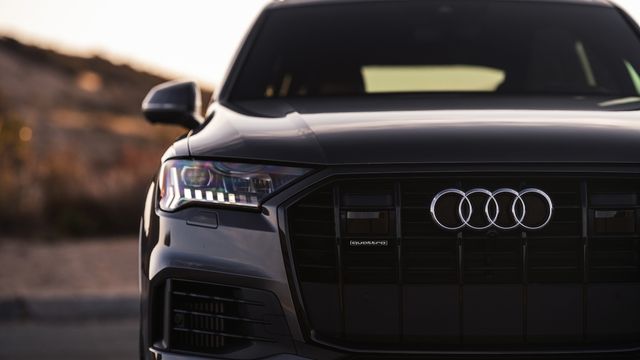How Long Do Audi Q7 Engines Last? Miles And Years
The Audi Q7 is a luxurious SUV that is popular in the market due to its amazing safety features. So, how long does its engine last? How long does the Audi Q7 engine last? Does it perform efficiently? Is the Q7 engine reliable? How is the engine designed to offer a long-lasting service? How does one make the Audi Q7 engine last for longer than its standard service?

How Long does Audi Q7 Engine Last?
The Q7’s engines are normally designed to last around 150,000 to 200,000 miles or 10 to 13 years depending on the general upkeep of the vehicle as well as the maintenance of the engine. It requires regular maintenance because small issues related to the engine may damage it if overlooked.
This article will examine the service life of the Audi Q7 engine and whether it is durable and reliable. It will also cover if the engine can offer more service life than its normal life and how to make it last longer than its normal service life. Therefore, if you are planning to buy an Audi Q7, but you are wondering whether it has a good engine lifespan, then this article will guide you on these.
The goal of the article is to ensure that you get factual, well-researched and reliable information. Our staff of writers, researchers, editors and other experts from different specializations have combined their efforts to ensure that the content is dependable and of high quality. So, if you read some of our articles, reviews and other relevant content, we can assure you that the information you are getting is more than credible.
The Audi Q7 Enginge Longevity
The engine is the cornerstone of every vehicle’s high performance and efficiency. The Audi Q7 offers different models whose engines can consume diesel or petrol. When it comes to the diesel engines, the vehicle offers a 228 hp 3-liter diesel engine that offers strength and power to the vehicle. However, the entry-level diesel can sometimes feel strained when traveling fast. Buying an Audi Q7 with a stronger diesel engine is advisable because it is nosier and makes an Audible diesel rattling when pushed.
Regarding the petrol engine variant, the vehicle contains a non-hybrid 55 TSFI petrol engine with a 335 horsepower output. The petrol Audi Q7 models are faster than the diesel engine because they can accelerate the vehicle up to 155 mph.
However, when it comes to lifespan, the diesel engine lasts longer. Basic habits interfere with the engine’s lifespan, such as abrupt start and stops, pressing the gas pedals excessively at a level the vehicle can’t handle and loading the vehicle with excessive luggage, among other habits.
When Audi Q7 is properly used and regularly maintained, it can last between 150,000 and 200,000 miles on average. Additionally, it should last between 10 and 13 years under 15000 miles of driving before necessitating expensive maintenance or breaking down. One should take proper care of the engine because Audi Q7 is known to have a sensitive engine.
The engine may frequently misfire, especially when left out during winter when it is turned on. But when it warms up, the misfire disappears. Additionally, poor-quality running gas may also decrease the engine’s lifespan because, with time, the carbon formed during combustion accumulates on the engine’s cylinders. If this is not monitored and serviced, the engine may get worse damage.
How to make the Audi Q7 Engine Last Longer

Technological advancement makes it simpler to find a reliable car and maintain it. However, it will not give one good service if one does not pay attention and care for it. The following are some of the ways to make the Audi Q7 engine last longer:
Monitoring Fluids and Filters
The engine is a complicated vehicle component that depends on lubricants and coolants to operate since they are packed with delicate and sensitive moving parts. These fragile components may sustain permanent harm if the fluid is not monitored or the filters are not changed regularly.
Even if one adheres to the suggested schedule of maintenance of the Audi Q7, one should still frequently check the oil levels and other fluids. Inspecting and replacing the filters is also a good idea. It only takes seconds and basic steps to check for fluids and replace filters.
Utilize the Correct Gas, Fluids and Vehicle Parts
Materials and car parts are not all made equal. For instance, there is a significant difference between an oil filter or fuel pump bought on eBay and one obtained from the manufacturer’s garage. Oil from a mechanic has a lot of differences from a budget retailer. But despite the potential harm, many drivers persist in using the cheapest and poor quality materials and parts for their Audi luxury SUVS.
It is advisable to use high-end items rather than budget-friendly components and fluids that may damage the engine, which is very expensive to repair or replace. In doing this, one will save money because the name-brand products typically last longer than budget alternatives. Also, pay attention to the type of gas the Audi Q7 uses. Don’t fill a sports car with ordinary fuel if it demands premium fuel. The engine won’t function efficiently, and it may sustain damage or wear out in the long run.
Tire Inspection and Rotation
The wheels and tires on the Audi Q7 are the components that get the least attention overall. They are also among the most crucial components because they affect how the automobile handles, accelerates, brakes, uses fuel and rides.
It is crucial to periodically check the tires by looking for signs like low inflation pressure, abrasive wear or excessive wear. These may indicate that the tires must be rotated, aligned or replaced. Additionally, spend some time maintaining the appropriate pressure as well. The proper tire pressure will not only improve fuel efficiency and effective engine functioning but also prolong the life of the tires.
Warming and Cooling the Engine
The Audi Q7 engine suffers harm when it is started cold. When one starts the motor, the oil is simply sitting in the oil pan since, during a cold season, the oil becomes less dense.
One must first push it around the motor to lubricate the moving parts, but it also needs to warm up before it can work. The best technique is to turn on the engine and let it idle for 30 to 60 seconds to enable the oil to circulate and then drive the vehicle slowly for a short distance for the motor to reach the proper operating temperature.
The Audi Q7 contains a turbocharger, which will make the engine hot, especially when driving it for a long distance. Instead of shutting off a burning hot engine, which can reduce the service span of the bearing because of direct contact with hot oil, Audi Q7 contains a water-cooled turbo that makes it less of a problem if used regularly, but it is still a good idea to start and stop gently during each trip.
Q7 Engine Lifespan
The Audi Q7 is a powerful family SUV whose engine works efficiently to provide strength and power. When the engine is turned on, it may misfire, especially if it is kept outside during a cold season, and when the driver has used the turbo for long, it may heat the engine and cause damage if one does not cool it adequately. For one to increase the engine’s lifespan, it is crucial to have regular servicing and maintenance.
